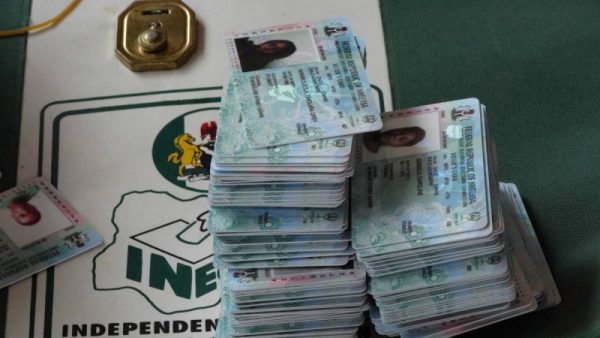The Federal High Court, Abuja has fixed January 30, 2023 to deliver judgment in a suit seeking to stop the Independent National Electoral Commission from dis-enfranchising eligible voters in the forthcoming general elections.
Justice Binta Nyako fixed the date on Monday after counsel in the matter adopted their written addresses.
The Incorporated Trustees of International Society for Civil Liberties and the Rule of Law, Emmanuel Chukwuka and Bruno Okeahialam, dragged the commission to court on the grounds that there were plans to disenfranchise some eligible voters.
The plaintiffs, in their suit, asked the court to determine whether INEC could, as a consequence of its own contraption, disenfranchise or deprive Nigerians the right or opportunity to vote in the forthcoming general election.

This, they said, was having regards to the true intention of Section 47(1) of the Electoral Act, 2022.
In the suit, marked: FHC/ABJ/CS/2022, the plaintiffs asked the court to declare that having been duly registered, they should be able to vote.
Arguing on behalf of the plaintiffs, Max Uzoaka prayed the court to declare that all persons who were registered with INEC as voters and whose names were contained in its voters register should not be deprived the right to vote in the election.
He said: “Having been registered and captured in the INEC register of voters and electronic database of registered voters, we and the persons we represent in the suit are entitled to vote in the February and March general elections.”
Ozoaka told the court that he had attached a newspaper publication as exhibit to his amended originating summons.
He pointed the court to the paragraph where the INEC Chairman, Prof. Mahmood Yakubu, acknowledged that INEC facilities were attacked and burnt.
He said: “The INEC Chairman acknowledged that the situation of insecurity in some offices of the commission gave rise to the loss of Permanent Voter Cards of several defendants.”
According to Uzoaka, INEC’s concept of “no PVC, no vote” will deprive eligible voters whose PVCs were burnt during the attacks on INEC’s offices the opportunity to vote during the elections.
He told the court that the Bimodal Voter Accreditation System machine introduced by INEC could accept the last six digits on the registration slip of voters.
He added that when the machine recognises the last six digits on the slip of a registered voter, the person’s biometrics were displayed and such a person should be able to vote.
He further argued that INEC had the responsibility of ensuring the safety of PVs, which were sensitive materials used during elections, and should ensure that people who had carried out their civic responsibility by registering to vote were allowed to.
Uzoaka reiterated that the aim of the suit was not to stop the election, but rather to ensure that no eligible voter was disenfranchised on account of burnt or destroyed PVCs due to attacks on INEC offices.
Arguing on behalf of INEC, Abdulaziz Sani (SAN), prayed the court to dismiss the suit on the grounds that it was frivolous, preemptive and speculative.
Sani contended that the case of the plaintiffs was based on a newspaper publication, which the Supreme Court had cautioned litigants against relying on.
He said: “The case of the plaintiff is based on downloaded soft copies of a newspaper publication and the Supreme Court has cautioned against the use of such publications.
The senior lawyer also argued that the plaintiffs had not placed before the court sufficient material to show that its mandate included interrogating INEC on such matters.
The INEC’s lawyer submitted that the case of the plaintiffs was laced with speculation as the commission had only recently extended the date for collection of PVCs.
According to Sani, that INEC offices were burnt doesn’t mean PVCs were burnt also.
He added that moreover, the plaintiffs had not presented any of the persons they were alleging that their PVCs were burnt before the court.
The senior advocate further told the court that the argument of the plaintiff that the last six digits on their slip could be used on the BVAS to allow people vote was mysterious to him as he was hearing it for the first time.
“The BVAS machine does not require the last six digits to work, it is the PVC that enables the machine to recognise a voter and the machine cannot work without the card,” Sani said.
The judge, having listened to both arguments, adjourned the matter until January 30 for judgement.
The News Agency of Nigeria reports that the plaintiffs, in the suit, prayed the court for an order compelling INEC to release their PVCs and all members of their class to enable them vote in the forthcoming general elections.
In the alternative, the plaintiffs want the court to direct the electoral umpire to reprint, distribute and release their PVCs and all the persons they represent in the suit.
Where this also failed, they asked the court to order INEC to allow them to vote with their temporal voter cards or registration slips already issued and released to them.

